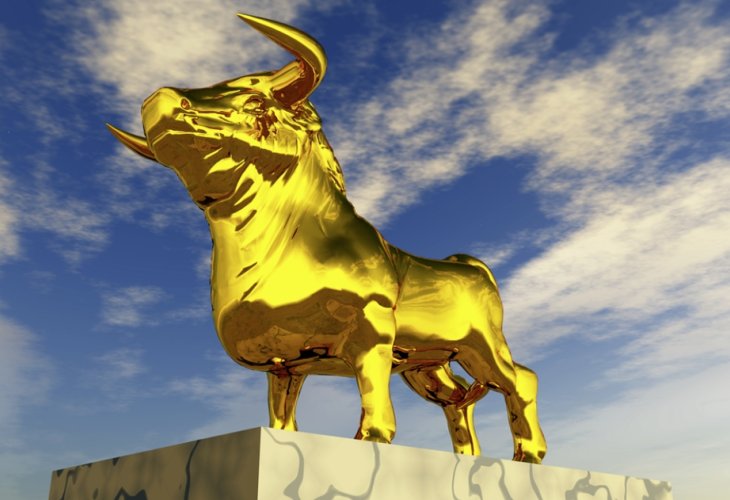Faith
The Golden Calf Explained: Why Israel Sinned After Sinai
Who really sinned, the role of the Erev Rav, and why it was a forbidden attempt to worship God through an idol
 (Photo: shutterstock)
(Photo: shutterstock)
Amitai asks: "Shalom, I’ve long been troubled by a question. The Israelites witnessed the Ten Plagues, the splitting of the Red Sea, and the revelation at Mount Sinai. How then could they possibly have sinned with the Golden Calf? What sense does it make to worship a statue after such an overwhelming divine revelation? Thank you."
* * *
Shalom Amitai, and thank you for your thoughtful question.
First, it’s important to note that the Torah is exceedingly strict in its judgment of the righteous, holding them accountable for even the slightest misstep. Moshe Rabbeinu (Moses) struck the rock instead of speaking to it, and God told him: “Because you did not believe in Me to sanctify Me” (Bamidbar 20:12). In the book of Yehoshua (Joshua), the Torah says: “The Israelites acted unfaithfully regarding the devoted things, and the anger of the Lord burned against Israel” (Yehoshua 7:1), even though it was only Achan who sinned, because the people as a whole did not protest, the guilt extended to them.
From this we learn how strict divine judgment is regarding the generation that received the Torah. For that reason, the Midrash and commentaries often speak very harshly and generally about the sin of the Golden Calf, so that we understand how terrible it was and learn to distance ourselves from anything similar.
In truth, it is unthinkable that the Israelites actually came to believe in another god or idol of gold after witnessing such staggering miracles including the plagues, about which even Pharaoh’s sorcerers admitted, “This is the finger of God” (Shemot 8:15); the Red Sea, after which the Torah states explicitly, “They believed in the Lord and in Moses His servant” (Shemot 14:31); and Sinai, where the people proclaimed, “All that the Lord has spoken, we will do” (Shemot 19:8).
The revelation at Sinai was so overwhelming that the people feared they would die from hearing God’s voice directly: “You speak to us and we will listen; but let not God speak to us, lest we die” (Shemot 20:16). Even the blazing mountain and thunder were less terrifying than the direct voice of God that caused their souls to leave them. Clearly, they were not about to worship “other gods” in the ordinary sense.
We will correct three very common misunderstandings about the Golden Calf.
1. Did you know the sinners thought they were serving the God of Israel?
The Torah never says they suddenly switched to foreign gods. It was Aaron himself who made the calf under pressure, and he declared: “Tomorrow shall be a festival to the Lord” (Shemot 32:5).
The Ramban explains that Aaron built the altar so that the sacrifices would be directed to the one true God, not to any other power. The sinners themselves declared: “This is your God, O Israel, who brought you up from Egypt” (Shemot 32:4) — they believed the calf represented the God of Israel. The Beit HaLevi also explains that they thought to connect to God through this image.
Later in history, Yeravam (Jeroboam) built golden calves for the northern kingdom, declaring: “Here are your gods, O Israel, who brought you up from Egypt” (Malachim I, 12:28). Again, the calves were intended as an alternate way to serve the true God, not a denial of Him — yet it was still idolatry, because God forbids any image.
The Egyptians too never thought the statues themselves were gods. Rather, they believed the statues represented heavenly powers. That is exactly why Judaism prohibits making any image even for God Himself; God is infinite, incorporeal, and beyond form, and reducing Him to an image is a distortion.
Thus, the Israelites sinned not by abandoning God, but by attempting to worship Him in a forbidden manner.
 (Photo: shutterstock)
(Photo: shutterstock)2. Did you know only about 3,000 actually sinned?
When Moses returned and called, “Whoever is for the Lord, come to me,” the tribe of Levi joined him. They struck down the sinners, and the Torah says: “And about three thousand men fell that day” (Shemot 32:28).
At the Exodus, the nation numbered at least 600,000 adult men — over 3 million people in total. Only a fraction of one percent sinned actively, but the entire nation was held guilty. This is because they did not protest, and they allowed Aaron to be pressured. The Talmud explains the rebels had already murdered Chur (Hur) the prophet for opposing them, and Aaron feared that if he resisted, they would kill him too, fulfilling the verse, “Priest and prophet will be slain in the sanctuary of the Lord.” He chose the lesser evil, stalling them with “Tomorrow shall be a festival to the Lord.”
Although the majority did not actively sin, they were complicit through silence.
3. Who were the sinners? The Erev Rav (“Mixed Multitude”).
The Midrash teaches that most of the instigators were from the Erev Rav — the Egyptians who joined the Israelites at the Exodus: “And a mixed multitude went up with them” (Shemot 12:38).
They brought with them Egyptian habits of idol worship, particularly the veneration of cattle. Archaeology and Scripture alike testify that Egypt considered cattle sacred: “For every shepherd is an abomination to Egypt” (Bereishit 46:34). When the calf was made, it reflected their culture.
Rashi points out that they said: “This is your God, O Israel, who brought you out” — not “our God.” They excluded themselves from the nation. God told Moses, “Go down, for your people have corrupted themselves” (Shemot 32:7). Rashi comments: “Your people — not My people — the Erev Rav whom you accepted on your own initiative.”
Thus, the driving force was the Erev Rav, not Israel proper.
The Golden Calf was not a case of Israel turning wholesale to pagan gods right after Sinai. It was a grave sin, but one rooted in fear, confusion, and outside influence, but not a denial of the God who had just redeemed them.

